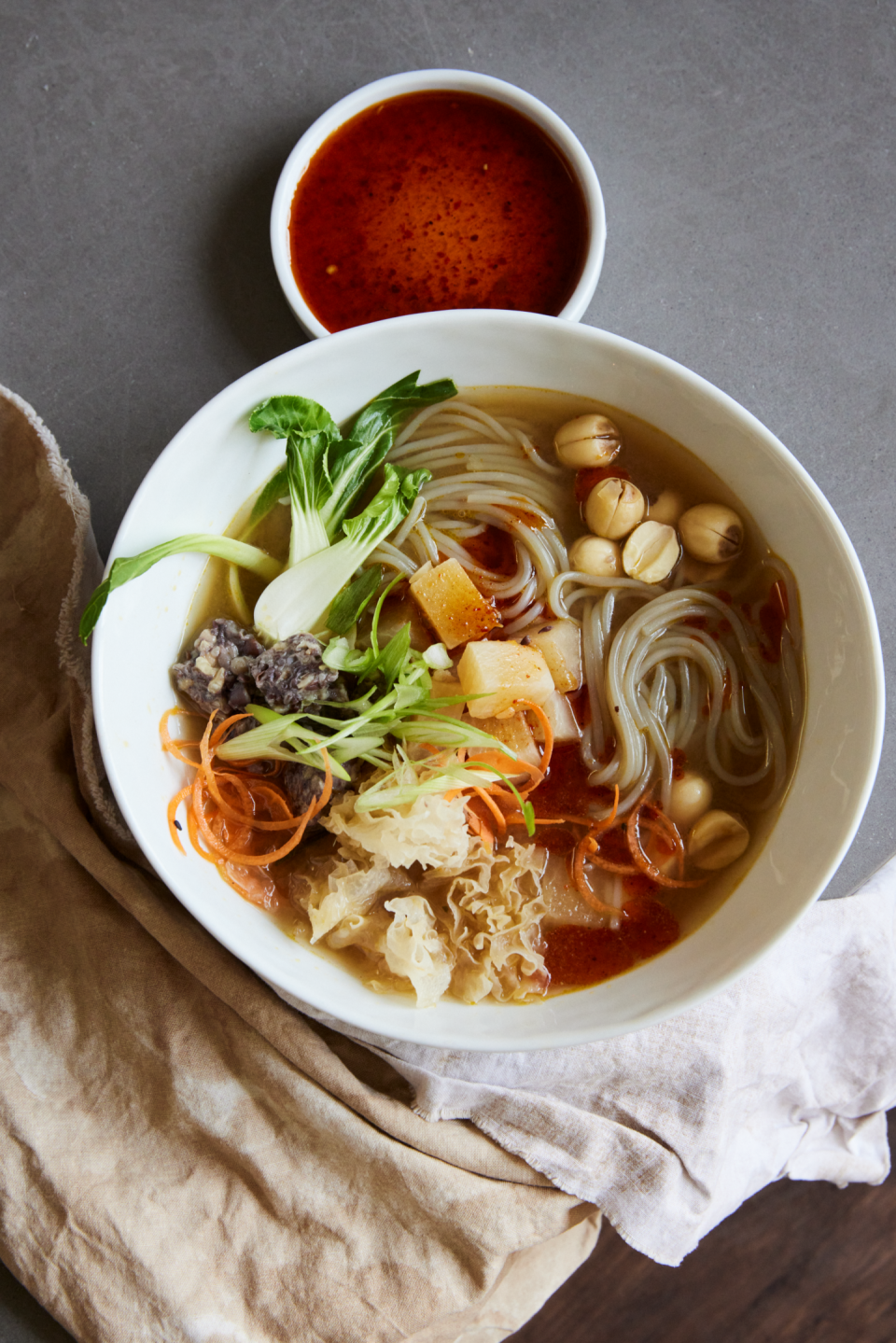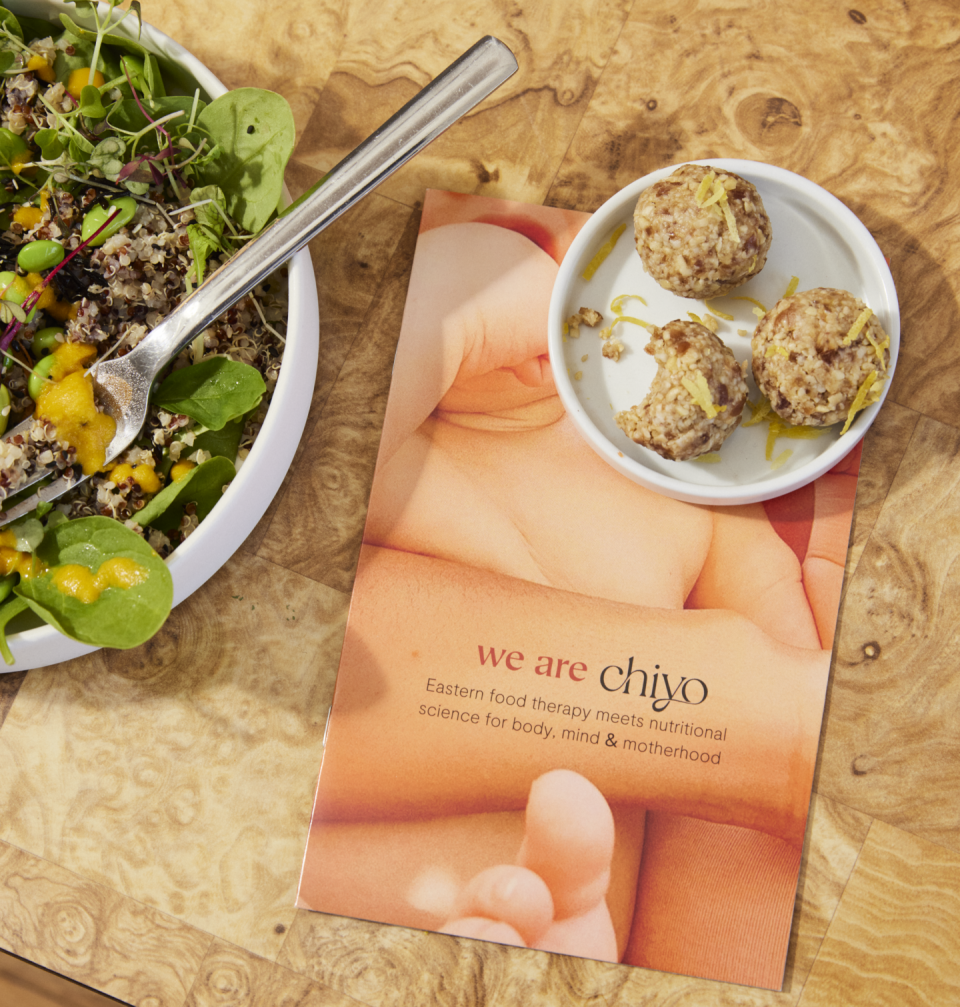Why nutrition is the missing piece in postpartum care
Giving birth is a transformative experience that can have a profound impact on a woman’s physical and emotional well-being. In many cultures around the world it is believed that how a woman is cared for and nourished postpartum can impact the future of her health. As a doula and new mother, I have seen firsthand just how crucial postpartum recovery support, including nutrition, rest and self care is for the entire family to heal and thrive.
Unfortunately, in many Western societies, postpartum recovery is often overlooked or even dismissed, with new mothers feeling pressured to “bounce back” to their pre-baby selves as quickly as possible. This can lead to a host of physical and mental health issues, including fatigue, anxiety and depression.
Traditional healing foods and rest after birth are a balm to women whose cultures prioritize them. Although Traditional Chinese Medicine (TCM) is often dismissed by Western medicine, the World Health Organization has recently recognized its efficacy and new research continues to emerge to shed more light on the effectiveness of TCM methods.

In many Asian cultures it is common practice to spend energy and time looking after mothers, both before and after birth. A postpartum confinement period is not viewed as a luxury but a priority offered to all burgeoning families.
As a mama and doula, I’m always looking for ways to support myself and my clients in finding easy and accessible resources when it comes to nutrition. When I first spoke with the co-founders of Chiyo, a nutrition and meal delivery service designed for fertility to postpartum, I was blown away by the thoughtfulness and wisdom Irene Liu and Jennifer Jolorte Doro put into their work.

Chiyo recognizes that postpartum recovery looks different for every woman, and that different cultural traditions have their own unique practices and beliefs around postpartum care. They have worked with experts from diverse backgrounds to create products that honor and celebrate these traditions, while also incorporating the latest scientific research.
In a society that often dismisses the importance of postpartum recovery, Chiyo’s approach is a refreshing and necessary shift. By prioritizing the healing and wellbeing of new mothers, they are helping to create a more compassionate and holistic approach to postpartum care. It’s time to stop seeing these needs as too “niche” or a “nice to have,” it’s the care women deserve.

As a nutrition consultant, I believe nutrition should always be our first approach in preventing and alleviating health challenges. Food has the power to transform the physical and mental wellbeing of the mother as well as the baby’s development and long-term eating habits.
In addition to recommending Chiyo to my clients, I believe that there are four essential pillars to postpartum recovery: nourishment, rest, touch and community. Postpartum looks different for everyone and needs are unique to each family. Here’s how I’ve been navigating our transformation since little Lou arrived in November 2022.
4 pillars to postpartum recovery
Nourishment
Throughout the world, many cultures provide their own version of ideal postpartum nourishment. The principle tenets tend to be nutrient dense, warm, traditional foods which typically support lactation, blood replenishment and tissue repair. In Korea, (miyeokguk) or seaweed soup, is also known as ‘birthday soup’ as it is primarily served postpartum. It is made with wakame seaweed, beef and broth. It is a prominent source of iodine, iron, folate and calcium. Iodine is a key nutrient for thyroid hormone support.
Rest
After birth, many OB-GYNs now recommend a minimum of 12 weeks for physical recovery. Despite the growing support for this shift, the US continues to have no federal paid family leave, which can make it difficult for many women to stay home and off their feet for that long. It’s then no surprise that 40% of moms today feel overwhelmed and depressed after having a baby. For the first 12 weeks after birth I put all other commitments aside so that I could prioritize rest and baby cuddles, something I wish the US would support for every birthing person.
Touch
In the same way we now know that babies bond via skin-to-skin contact, this is also true for mothers in their recovery. Touch releases oxytocin, which can alleviate stress, lower blood pressure, improve your mood and support breastmilk supply. Bodywork, a combination of modalities that can include massage and acupuncture, helps to release tension and reset the nervous system, all in overdrive during this time.
Community
In today’s world, more and more of us are living in nuclear units, away from our closest friends and family. In a culture that celebrates women “doing it all,” it can be challenging to ask for the support you need to feel truly held by your village. I used the registry Little Honey Money so that my loved ones could contribute to my recovery and sacred postpartum widow in the ways I needed most.
Proper nutrition is the foundation to health. While clinicians and researchers are aligned on its impact on prenatal health outcomes, little focus has been given to the distinct postpartum stage. Data shows that nutrition impacts not only physical recovery, but also our moods, mental health, and stress levels. Our ancestors prioritized this in their postpartum traditions over generations. Isn’t it time we modernized this practice and optimized nutrition for the ride of postpartum?
Chiyo’s “Who is Mothering the Mother” campaign – a collective of maternal care organizations on a mission to evolve the way our society thinks about and actively cares for mothers, is now live. Chiyo is a next generation maternal nutrition company rooted in Eastern Food Therapy for the fertility to postpartum phases.


